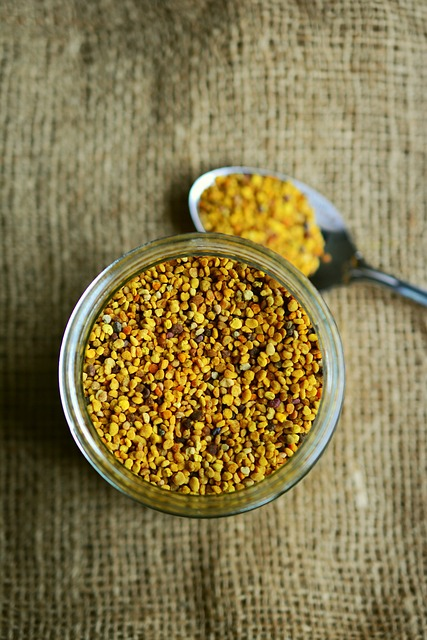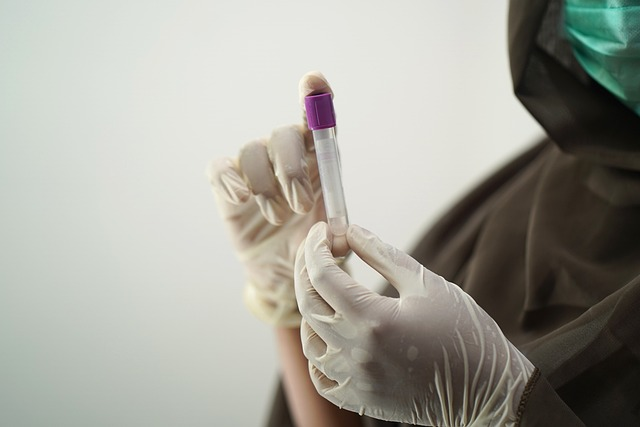Dr. Matthew Olesiak continues to make a significant impact in the medical field through his work at SANESolution and his dedication to evidence-based practices.
How to Get Rid of a Dry Throat
Learn how to get rid of a dry throat with remedies by understanding first – causes and treatments.
A dry, scratchy throat can be a real nuisance, disrupting your daily life and making it difficult to swallow or even speak.
But did you know that understanding the causes of a dry throat is essential for effective treatment?
In this Throat Cleaner and Throat Health blog post, we’ll explore the various factors that can lead to a dry throat, as well as effective treatments and preventive measures on how to get rid of a dry throat, to help you find relief. Continue your throat health education and actionable steps with our Understanding Why Does My Throat Hurt When I Swallow and Why is My Throat Sore? Symptoms, Causes, and Treatments guides next!

- New Report Says Your Brain Could Be the Key to Reducing Phlegm Over 50
- Doctor's "Leave The Throat Phlegm Behind" Tutorial Goes Viral With People Over 50
- Can You Relieve Throat Phlegm and Coughing In 60 Seconds A Day? This Doctor Says Yes
- How To Banish Phlegm When 50+ (Do This Every Day)
Short Summary
- Understanding the causes of a dry throat is essential for providing effective treatment.
- Home remedies like taking our Throat Cleaner, and lifestyle changes, such as increasing fluid intake and avoiding allergens/irritants, can help to provide relief from dry throat symptoms.
- Consulting a medical professional is recommended if experiencing persistent or worsening symptoms, as this could be indicative of an underlying throat health or systemic condition.
Understanding Dry Throat Causes

Comprehending the origins of a scratchy throat is imperative for effective treatment. It is not uncommon to wake up with a dry or sore throat caused due to various factors, including:
- Infections
- Allergies
- Dehydration
- Nasal congestion
- Lifestyle factors
Having a dry mouth is frequently correlated with a dry throat, which can result in suboptimal sleep quality. Hydration is paramount in addressing dry mouth symptoms and throat, especially when caused by allergic rhinitis.
By understanding the various causes of dry throat, you can better determine the most appropriate treatment to find relief. Let’s delve deeper into the specific causes, starting with viral infections first.
Infections: Viral and Bacterial
The various common colds and influenza can be associated with dry or sore throat symptoms. Symptoms of the flu can range from a dry throat to a sore throat.
It’s important to be mindful of these signs as they can signal infection. The flu is an infectious respiratory illness caused by an influenza virus and can result in dry scratchy throat symptoms.
The flu can be more severe than a common cold.
In some cases, bed rest may be required. Strep throat is another bacterial infection that necessitates antibiotics for treatment. Additional indications of strep throat include:
- dry cough
- swollen tonsils
- white patches on the throat
- difficulty swallowing
The symptoms of viral and bacterial dry throat may vary depending on the pathogen responsible but may include painful swallowing, irritation, throat pain, and sore throats. It’s important to identify the underlying cause first of your dry throat, as the treatment will differ for viral and bacterial infections.
Now, let’s explore how allergies and hay fever can also contribute to a dry throat.
Allergies and Hay Fever
Allergies and hay fever are conditions that can cause dry throat, impacting millions of individuals globally.
The typical symptoms of allergies and hay fever that may lead to a dry throat include scratchiness, sneezing, and itchy eyes.
A blocked nose may lead to mouth breathing, which is a common symptom of allergies and can result in a dry throat. Histamine is released during an allergic reaction.
This can lead to various conditions, including a dry throat. Treatment options for managing allergy symptoms include antihistamines, decongestants, and eye allergy drops.
Immunotherapy for hay fever is a process of gradually increasing exposure to allergens in controlled conditions to help the immune system become tolerant of them, thereby reducing allergy symptoms over time.
Now, let’s discuss how dehydration and lifestyle factors can contribute to a dry throat. Dehydration can cause a dry throat, as the body needs water to produce saliva.
Dehydration and Lifestyle Factors
Smoking, alcohol consumption, and certain medications have been linked to dry throat symptoms. Smoking can lead to irritation, dryness, redness, and inflammation of the throat.
Additionally, polyps may form on the vocal cords, which can have an impact on the voice. Smoking can have severe consequences on our health.
It can lead to coughing, difficulty in swallowing, and even oral cancer. It is important to be aware of potential hidden sources of alcohol, such as mouthwashes or cough syrups, which should be avoided or limited.
Individuals who smoke, as well as those exposed to secondhand cigarette smoke, are at risk of developing throat problems.
By addressing these lifestyle factors, you can significantly reduce the risk of experiencing dry throat symptoms.
Now, let’s move on to effective home remedies for dry throat relief.
Home Remedies for Dry Throat Relief

Hydration, salt water gargling, and using honey, lemon, and herbal teas are all potential home remedies for dry throat relief.
Utilizing a cool-mist humidifier to increase humidity levels in the air may be beneficial in alleviating dry throat symptoms. Hot sauce may also assist in reducing inflammation and providing relief from the discomfort associated with a dry throat.
Warm-mist humidifiers may lead to swollen nasal passages and breathing issues, while hot water or steam could cause burns.
Let’s explore these home remedies in more detail, starting with hydration and fluid intake.
Hydration and Fluid Intake
Consuming more fluids can be beneficial in relieving dry throat symptoms. Watermelon and cucumbers are two examples of fruits and vegetables that are especially high in water content and can be beneficial for hydration.
An air humidifier can maintain the air at an agreeable moisture level, thereby providing relief for a dry throat. Using a mobile app to remind oneself to drink enough water is a recommended approach.
By staying hydrated, you can alleviate the discomfort associated with a dry throat and improve your overall health. Next, let’s discuss the benefits of salt water gargling.
Salt Water Gargling
Salt water gargling is a home remedy for dry throat relief that involves mixing 1/4 to 1/2 teaspoon of salt with every 8 ounces of warm water and gargling the solution for 10-15 seconds before spitting it out into a sink.
It is recommended to mix approximately 1/4 to 1/2 teaspoon of salt with every 8 ounces of warm water. Then, take a sip of the salt water and tilt the head back while gargling the solution for about 10-15 seconds before spitting it out into a sink.
Gargling with salt water can assist in alleviating dry throat by eliminating bacteria and loosening mucus. This simple and cost-effective remedy can provide significant relief from dry throat symptoms.
Now, let’s explore the benefits of honey, lemon, green tea, and herbal tea.
Honey, Lemon, and Herbal Teas
The utilization of honey, lemon, and herbal teas can provide relief for dry throat and flu symptoms and can bolster the immune system. Here’s how each of these ingredients can help:
- Honey: The consumption of honey can help alleviate a dry throat by decreasing inflammation and irritation, as well as by reducing mucus secretion. Additionally, honey contains antioxidant and antimicrobial compounds that can reduce the symptoms of a sore throat.
- Lemon: Lemon juice can help break up mucus and provide pain relief, as well as being high in vitamin C, which can help support the immune system.
- Herbal teas: Herbal teas can be beneficial in soothing a dry throat and alleviating the associated symptoms. Additionally, they may help bolster the immune system and provide antioxidant properties.
Now that we’ve covered home remedies for most sore throats let’s discuss medical treatments for persistent dry throat.
Medical Treatments for Persistent Dry Throat

Treatments for persistent dry throat may include over-the-counter medications, prescription medications, and consulting a medical professional.
It is recommended to consult your doctor if the symptoms persist or become worse.
Visiting a healthcare professional is the most effective way to treat strep throat, as they can administer a test to confirm strep throat and provide an antibiotic if the test is positive.
Let’s take a closer look at these medical treatments, starting with over-the-counter medications.
Over-the-Counter Medications
Typically, over-the-counter (OTC) options for treating a dry throat include:
- Antihistamines
- Cough suppressants
- Lozenges
- Pain medications such as Tylenol (acetaminophen) and Motrin (ibuprofen)
- Decongestants
These OTC options can help to relieve the pain and symptoms of a dry throat.
These over-the-counter medications can provide relief from dry throat symptoms and are easily accessible at most drugstores.
Next, let’s discuss prescription medications and antibiotics.
Prescription Medications and Antibiotics
Prescription medications and antibiotics may be necessary for the following conditions:
- Bacterial infections such as strep throat. A physician may prescribe medications or antibiotics if a bacterial infection, such as strep throat, is present.
- Dry throat. Pilocarpine (Salagen) and cevimeline (Evoxac) may be prescribed to stimulate saliva production for a dry throat.
- Allergies. Antihistamines and corticosteroid nasal sprays may be prescribed for allergies that cause a dry throat.
Healthcare providers often prescribe antibiotics, like amoxicillin or Zithromax (azithromycin), to those who have tested positive for strep throat and are showing symptoms.
Treatment with antibiotics is highly important for this condition. Now, let’s discuss the importance of seeking professional help for severe symptoms.
Seeking Professional Help

It is advisable to seek professional help if dry throat symptoms persist or worsen, as this may indicate a more serious underlying condition.
Doctors may prescribe medications such as pilocarpine or cevimeline to stimulate saliva production for a dry throat.
By consulting a medical professional, you can ensure that your dry throat and other symptoms are properly addressed and treated, especially if they are due to an underlying condition.
Now, let’s discuss preventive measures and lifestyle changes to reduce the risk of dry throat symptoms.
Preventive Measures and Lifestyle Changes

Staying hydrated, using a humidifier, and drinking salt water are all effective preventive measures for a dry throat. Remaining hydrated assists in keeping the throat lubricated, thereby reducing the risk of dry throat symptoms.
The use of a humidifier can help maintain a moist environment, ultimately decreasing the likelihood of dry throat symptoms. Gargling with salt water has the potential to reduce inflammation and provide relief to the throat, thus reducing the risk of dry throat symptoms.
Let’s explore these preventive measures in more detail, starting with avoiding allergens and irritants.
Avoiding Allergens and Irritants
It is known that pet dander, molds, dust, pollen, very dry air, indoor air, and hay fever allergens can worsen a dry throat. To reduce dry throat symptoms, it is recommended to avoid allergens and irritants such as pollen, dust, and smoke.
By avoiding these allergens and irritants, you can minimize dry throat symptoms and improve your overall well-being.
Next, let’s discuss adjusting sleep habits to reduce the risk of dry throat during sleep.
Adjusting Sleep Habits
Using a humidifier during sleep may help add moisture to the air and reduce the occurrence of dry throat symptoms. Having your mouth open while sleeping may be a contributing factor to dry throat symptoms during sleep.
According to the CDC, adults should get a minimum of seven hours of sleep each night. The recommended sleep duration varies based on age.
- Adults between 18-60 years of age: seven hours of sleep
- Adults aged 61-64: seven to nine hours of sleep
- Adults 65 and older: seven to eight hours of sleep.
By adjusting your sleep habits, you can reduce the risk of experiencing dry throat symptoms during the night. Lastly, let’s discuss the importance of maintaining proper hydration.
Maintaining Proper Hydration
Proper hydration is essential for the body to function optimally and can help reduce the discomfort associated with a dry throat by keeping the throat lubricated and hydrated. Adequate water intake is essential for proper hydration. Additionally, it is recommended to limit the consumption of alcohol, coffee, and other caffeine-containing beverages, as they may contribute to dehydration. Consuming too much caffeine or alcohol can cause the body to expend more fluids than it takes in, leading to dehydration.
By maintaining proper hydration, you can alleviate dry throat discomfort and improve your overall health.
Now, let’s summarize what we’ve learned in this blog post.
Summary
In conclusion, understanding the causes of dry throat is essential for effective treatment. By exploring various factors like infections, allergies, dehydration, and lifestyle factors, as well as implementing home remedies, medical treatments, and preventive measures, you can find relief from dry throat symptoms and improve your overall well-being. Remember, staying hydrated, avoiding allergens and irritants, and adjusting sleep habits play a crucial role in reducing the risk of dry throat. Take control of your health and say goodbye to that irritating dry throat!
Frequently Asked Questions
What are the causes of dry throat?
A dry throat is typically a symptom of a head cold, dehydration, or sleeping with mouth open, often exacerbated by winter weather. Drinking warm liquids and using lotions are home treatments that can provide relief.
If symptoms persist, consult a doctor.
How long does a dry throat last?
A dry throat typically lasts a few days to a few weeks. If it persists longer than two weeks or you experience complications, it’s important to see a doctor for further advice.
How do you get rid of a dry throat overnight?
To get rid of a dry throat overnight, be sure to stay hydrated by drinking plenty of fluids throughout the day. Additionally, use a humidifier in your bedroom and treat any underlying conditions such as obstructive sleep apnea.
Lastly, try avoiding spicy, acidic, and sugary foods before bed.
What are the symptoms of dry throat?
A dry throat is a common condition characterized by a scratchy, rough, and itchy feeling in the back of your throat. It is most often experienced during cold and flu seasons or during colder weather.
A dry throat can be caused by a variety of factors, such as allergies, air pollution, smoking, and dehydration. It can also be caused by a virus or bacteria, such as the common cold or strep.
When should I seek professional help for my dry throat?
If your dry throat does not improve or gets worse, it is best to seek professional help as soon as possible.

Dr. Matthew Olesiak continues to make a significant impact in the medical field through his work at SANESolution and his dedication to evidence-based practices.



